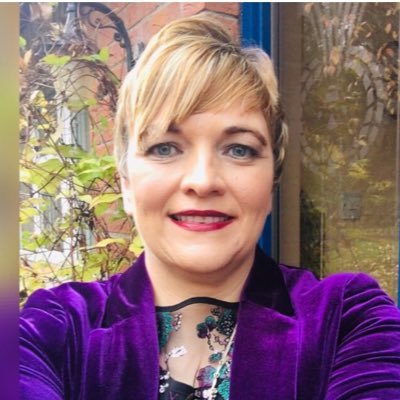Blog by Noirin O’Neill
As a patient and a person who has survived a life – threatening hemorrhaging form of leukemia in 2004 at 30 years of age, I care deeply about patient involvement, patient empowerment and self-care. I know that self- care will help me as a patient to live better with my health condition and that in turn can help the NHS to exist more sustainably too.
We all know that if patients take charge of their own health with the support of their healthcare team, they feel more empowered. It is about working together to make those changes to improve their health. Self help apps are designed to help us solve our problems and change our behavior but they can also make us feel angry, frustrated and a failure. The coronavirus outbreak has taught us that our future is not in the hands of algorithms and automated processes completely. It has also taken self-care to an entirely new sphere. Public health messaging is focused on the individual health message to “take care of your health and protect others.” (WHO, 2020).
This concept is not new to me. As a leukemia patient, I was in isolation on multiple occasions for various infections in hospital including the Respiratory Syncytial Virus (RSV)which comes back to haunt me now. Visits by family and friends were severely restricted, rigorous handwashing was in place for everyone, no towels and fans were allowed on the hematology ward due to risk of infection. Nurses and doctors were often wearing masks and aprons when administering chemotherapy and drugs to protect themselves and other patients from infection.
However, one critic of the messaging in the WHO Covid 19 campaign has opined that public health messages that focus on the individual do not work. It has been suggested that when a health message is framed so that people should heed their moral responsibility and people should do particular things that we can all do for each other, it is more likely to be effective.
On Wednesday 8 April 2020 at 8pm (UK time) EBN @EBNursingBMJ will host a Twitter chat that provides the opportunity to discuss issues surrounding self care: a moral responsibility during a global health emergency.
- Is self- care a moral responsibility during a global health emergency or always?
- Do public health messages that focus on the individual work or not?
- Should the focus of all public health messages be on moral responsibility? Eg. Awareness of UV radiation.
- What lessons can be learned for self-care strategies and health messaging for the future arising out COVID19.
Join us on Wednesday using hashtag #EBNJC.
References
Coronavirus (COVID-19) advice for UK employers. Available at https://www.cipd.co.uk/knowledge/fundamentals/emp-law/health-safety/coronavirus-factsheet
Coronavirus Covid-19. Available at https://www.nhs.uk/conditions/coronavirus-covid-19/
Covid-19: Health message focus on individual ‘does not work’. Available at: https://www.rte.ie/news/coronavirus/2020/0311/1121620-coronavirus-psychology/
World Health Organisation. Available at https://www.who.int/
